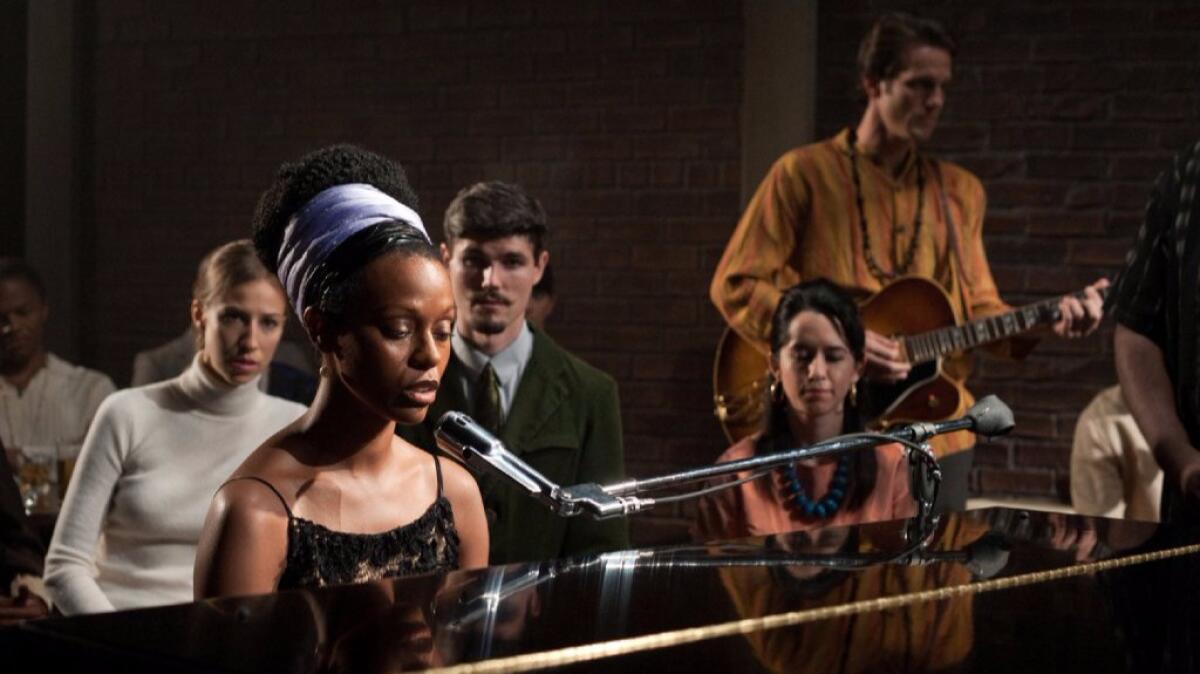Zoe Saldana on her role in ‘Nina’ biopic: ‘There is no one way to be black’

This summer, in “Star Trek: Beyond,” Zoe Saldana will reprise her role as the USS Enterprise’s chief communications officer, Uhura, a part that was pioneering for black women in its origins. Played on the original, 1960s “Star Trek” CBS show by actress Nichelle Nichols, the Uhura role was unique in its time for casting an African American woman on television in a position of respect, rather than subservience.
But it was Saldana’s recent performance as another groundbreaking black woman, jazz legend Nina Simone, in the controversial, long-gestating biopic “Nina,” that has placed the actress at the center of an intense discussion about race.
“There’s no one way to be black,” Saldana said, addressing the controversy around “Nina” in a revealing interview in the latest issue of Allure, which hits newsstands June 28. “You have no idea who I am. I am black. I’m raising black men. Don’t you ever think you can look at me and address me with such disdain.”
Saldana, who is of Dominican and Puerto Rican descent, is best known for her roles as exotic, otherworldly characters: In “Avatar,” she plays the blue Na’vi princess Neytiri, and in “Guardians of the Galaxy,” she’s the green assassin Gamora.
“Nina,” which arrived in theaters in April to scathing reviews, drew ire from Simone’s estate and fans for Saldana’s casting, and for the makeup and prosthetics used to make the actress more closely resemble Simone.
“Nina looks like half my family,” Saldana said, in response to the critique. “But if you think the [prosthetic] nose I wore was unattractive, then maybe you need to ask yourself, ‘What do you consider beautiful?’ Do you consider a thinner nose beautiful, so the wider you get, the more insulted you become?”
See the most-read stories in Entertainment this hour »
Saldana told Allure she turned “Nina” director Cynthia Mort down for a year before accepting the part.
“The script probably would still be lying around, going from office to office, agency to agency, and nobody would have done it,” Mort said. “Female stories aren’t relevant enough, especially a black female story. I made a choice. Do I continue passing on the script and hope that the ‘right’ black person will do it, or do I say, ‘You know what? Whatever consequences this may bring about, my casting is nothing in comparison to the fact that this story must be told.’ ”
ALSO
Watch the trailer for Netflix’s Nina Simone documentary
Zoe Saldana’s new ‘Star Trek’ uniform channels the ‘60s series
What fueled Nina Simone’s creative fire? Two films will tell different stories
More to Read
Only good movies
Get the Indie Focus newsletter, Mark Olsen's weekly guide to the world of cinema.
You may occasionally receive promotional content from the Los Angeles Times.











